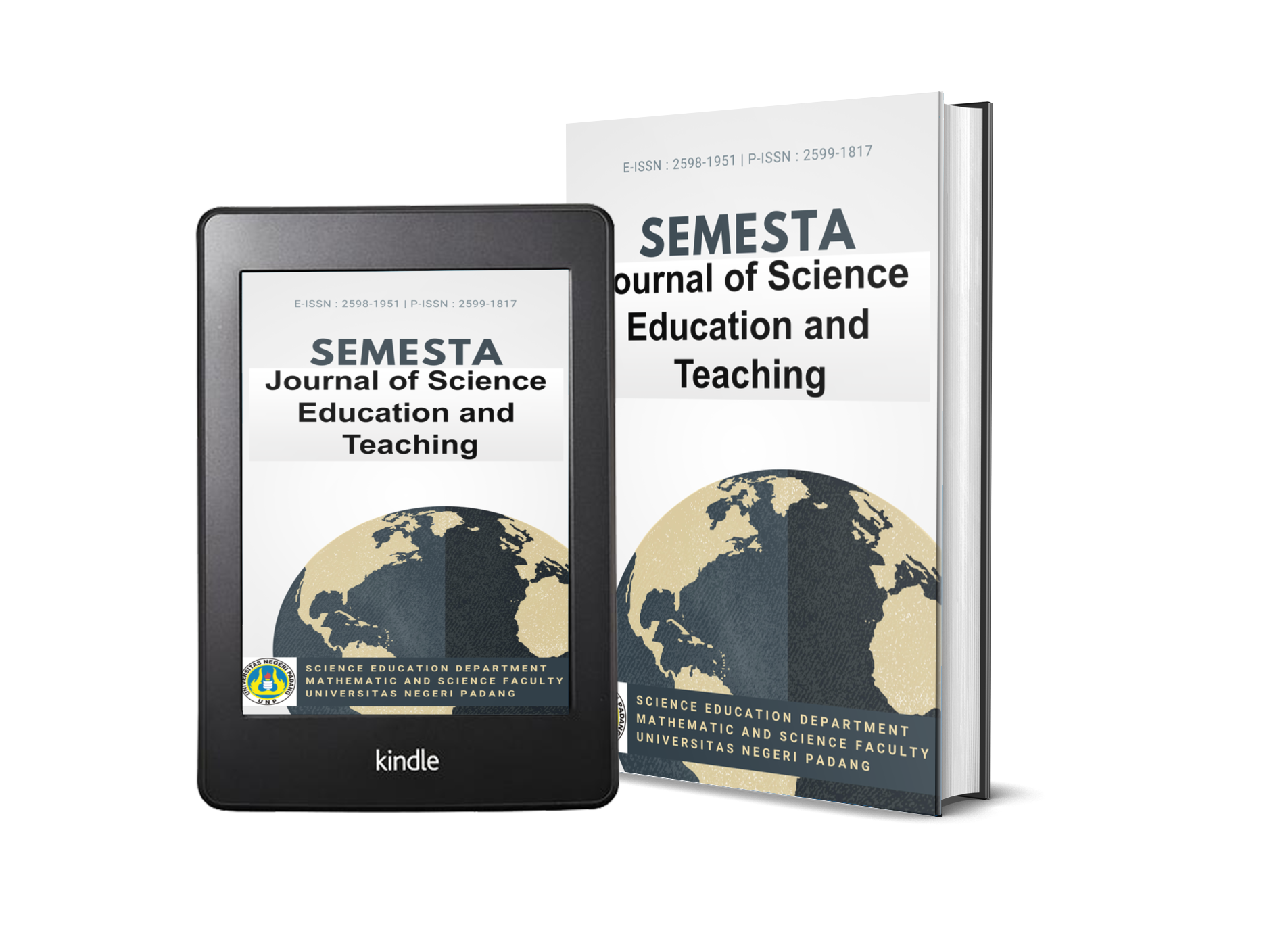DEVELOPMENT OF E-MODULE BASED ON ETHNOSCIENCE APPROACHES ON ADDITIVE AND ADDICTIVE SUBSTANCE FOR JUNIOR HIGH SCHOOL
DOI:
https://doi.org/10.24036/semesta/vol4-iss2/163Keywords:
E-module, Additive Additive And Addictive Substance, Ethnoscience ApproachAbstract
The curriculum 2013 requires students to be more active and independent in learning so that teachers must facilitate teaching materials that are able to make students learn independently. Along with the development of technology, teachers are required to provide innovation in teaching materials. In this situation, the current pandemic conditions require online learning. The results of observations at SMP Negeri 7 Padang show that the teaching materials used have not been able to help the learning process. Based on these problems, electronic teaching materials are a solution to support the learning process, one of which is an electronic module (e-module). This study aims to produce an integrated science e-module with an ethnoscience approach to valid and practical. The type of research used is Research and Development (R&D) with the ADDIE model consisting of five stages, namely analysis, design, development, implementation and evaluation, but thisresearch is limited until development stage. The research subjects were 3 lecturers of Science Education, FMIPA UNP, teachers and students of SMP Negeri 7 Padang. The instruments used in this research were validity and practicality questionnaires. The results of the validity test obtained an average kappa moment value (k) of 0.87 with a very high validity category. The results of the practicality test on the teacher obtained an average kappa moment value (k) of 0.88 with a very high validity category and the results of the practicality test on the students obtained an average kappa moment value (k) of 0.86 with a very high validity category. Based on these results, it is concluded that the e-module with an ethnoscience approach on additives and addictive substances is valid and practical.








